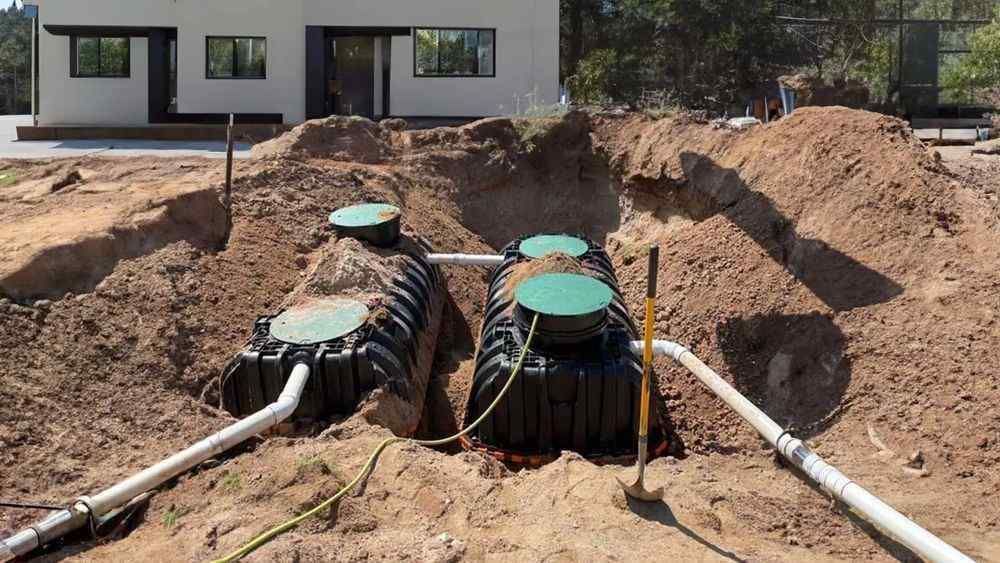Maintaining a septic system properly is essential for ensuring its effectiveness and longevity of your home's wastewater management. Like any other home system, a septic tank requires regular attention to prevent emergencies and costly repairs. Here's what you need to look out for to determine if your septic system needs professional attention.

How Often To Pump Septic Tank
The recommended frequency for pumping your septic tank depends on its size and the number of occupants in your household. Typically, it's advisable to have your septic tank pumped every three to five years. However, if you notice signs of problems or if your household size has increased, you might need to do it more frequently. Regular pumping is essential to remove the build-up of solids from the tank, ensuring the system operates efficiently and preventing backups. For details on recommended schedules, visit our septic tank maintenance services here.
Signs Your System Needs More Than Regular Maintenance
- Signs your septic needs to be pumped: Frequent need for pumping can indicate that your septic tank is not functioning as it should. If you find that your septic system needs more frequent pumping than the standard recommendation, it might be time to call in the experts. This could be a sign of improper usage or potential blockages affecting the system's efficiency.
- Signs of septic backup: One of the most obvious indicators that your septic system requires immediate attention is the presence of wastewater backup in your home. Indications of a problem include sinks and toilets that drain slowly and make gurgling noises, and water pooling around the drain field. Septic backup not only poses health risks but also signifies a major issue in the septic system that needs quick resolution.
- Septic tank problems: Common issues with septic tanks include cracks, leaks, and blockages. These problems can lead to unpleasant odors, soggy lawns, or unexplained lush vegetation around the drain field area. Detecting and repairing issues early is crucial for preventing these problems from escalating into more significant damages.
Preventative Measures
To avoid these issues, consider the following preventative strategies:
- Conserve water: The less water you use, the less strain you put on your septic system. Simple changes like fixing leaks, installing water-efficient fixtures, and using dishwashers and washing machines only when full can significantly reduce the water load on your septic system.
- Proper waste disposal: Pay attention to what you put down your drains. Do not flush non-biodegradable items like feminine hygiene products, diapers, or paper towels, as these can cause clogs in the system. Also, avoid pouring grease or hazardous chemicals like paint or solvents into your drains, as these can damage the septic system and soil bacteria.
- Regular inspections: Schedule inspections for your septic tank at least once every three years. A professional can assist in identifying potential issues at an early stage, such as cracks or leaks, before they become severe problems. Regular inspections also ensure that your system complies with local health regulations.
- Pump your tank regularly: As mentioned above, ensure that your septic tank is pumped at the interval recommended by professionals based on the size of your tank and household usage. This prevents the build-up of solids that can lead to backups and system failure.
When to Call a Professional
If you notice any of the above signs your septic needs to be pumped or other irregularities, it's crucial to consult a professional. Scorpion Septic offers expert septic system services designed to manage every facet of septic care, ranging from routine maintenance to emergency repairs. Check out our septic repair services here.
Recognizing the signs of septic backup and understanding how often to pump septic tank are essential skills for any homeowner with a septic system. Regular maintenance and awareness of septic tank problems can save you from the inconvenience and costs of major septic system failures.
If you suspect any issues with your septic system or if it's time for a routine check-up, don't hesitate to reach out to Scorpion Septic. Visit our contact page or explore our blog for more tips on maintaining a healthy septic system.
For a reliable partner in keeping your septic system in top shape, remember Scorpion Septic. We're here to help ensure your septic system works smoothly and efficiently.

